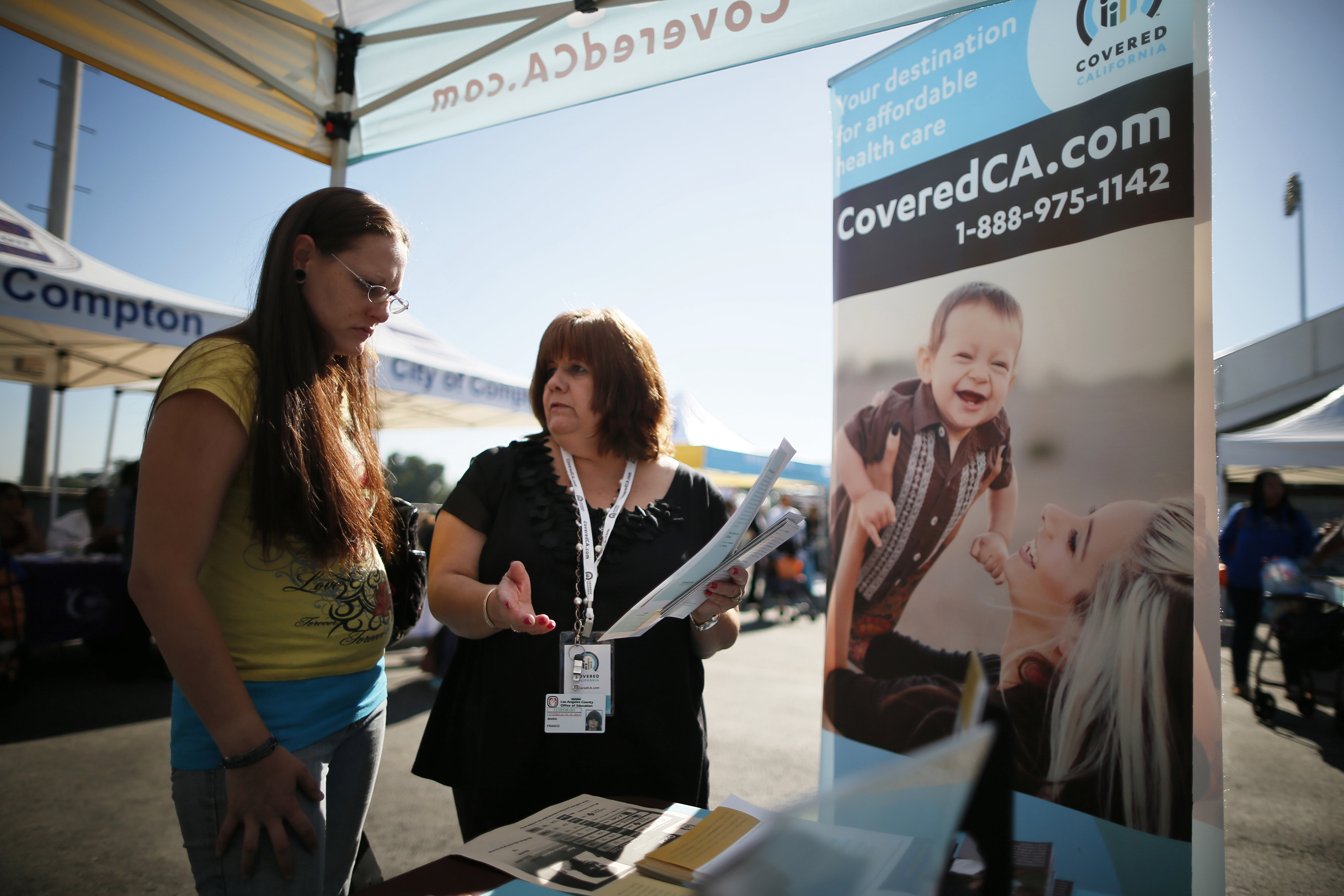
Millions of Americans have enrolled in new health insurance plans because of the expansion in coverage offered by the Patient Protection and Affordable Care Act, also known as Obamacare. One of the populations that has better access to healthcare is immigrants, and Los Angeles is a magnet for people born somewhere else. Immigrants make up about a third of the residents of our county. It can be a challenge for even the native-born to understand our complex—and often maddening—healthcare system. And, the rules have recently changed. In advance of the Zócalo/California Wellness Foundation event, “Will Obamacare Really Help L.A.’s Immigrants?”, we asked healthcare policy experts: How will Obamacare help L.A.’s immigrants in ways intended and unintended?

The Affordable Care Act (ACA) helps immigrant Californians get care by expanding coverage through Medicaid (low-income health insurance) and Covered California (the state health insurance marketplace) for those legally present, encouraging employer-based coverage, and better funding community clinics. California has taken additional steps, expanding coverage to some excluded from the federal law, including recent legal immigrants and deferred-action undocumented immigrants such as DREAM Act youth.
In turn, Los Angeles is ground zero for the crisis of the uninsured nationally, and remarkably and appropriately, a health reform laboratory producing one of the act’s greatest successes.
While two dozen states still refuse the ACA’s Medicaid expansion, California expanded coverage early, through low-income health programs set up in Los Angeles and 52 other counties. Through December, over 700,000 Californians got care through these programs; in January, all of these Californians—including the 318,000 in Los Angeles’ version, Healthy Way L.A., were transferred into Medi-Cal, which provides more comprehensive coverage and goes beyond county borders.
Los Angeles has long invested in a public hospital and health system that provided episodic and emergency care, but programs like Healthy Way L.A. helped teach us how to do the safety net better. They showed the benefits of also giving patients a medical home, providing primary and preventive care, and managing conditions like arthritis and diabetes. This prevents more severe and costly treatments later, such as emergency room visits and amputations. Los Angeles and other counties are looking to use those lessons to provide efficient and effective care to the remaining uninsured, including the undocumented.
Los Angeles is planning a relaunched (and possibly renamed) Healthy Way L.A. to start this fall, and we need to use the Affordable Care Act as a platform to go further at both the county and at the state level. One statewide solution is state Senator Ricardo Lara’s SB 1005, which extends the help the act offers to all Californians, regardless of immigration status. Our health system is stronger if everyone is included.
Anthony Wright is the executive director of Health Access California, the statewide healthcare consumer advocacy coalition with offices in Sacramento, Oakland, and Los Angeles.

As a significant part of our population, California’s immigrants will shape the success of the Affordable Care Act in our state. The law’s impact on immigrants will also have a profound effect on L.A.’s nonprofit community clinics and health centers: 44 percent of the 1.3 million patients these clinics serve speak a primary language other than English.
Thanks to targeted efforts, coverage is improving for immigrant communities: When Latino enrollment in Covered California got off to an abysmal start, health centers and clinics stepped up. Nearly half of California’s enrollment counselors are now associated with clinics. Partnering with a local church and community agency, counselors from one clinic reached 170 Cambodians in just one day. At the end of open enrollment, Covered California beat its projected targets.
For health reform to succeed, the health of whole populations needs to improve and the skyrocketing costs of our healthcare system need to be contained. To accomplish these goals, clinics and community partners will need to help newly covered groups navigate the healthcare benefits and inform them about the value of preventive services and the role of primary care. It is incumbent upon us to help the newly enrolled adopt a culture of coverage under the Affordable Care Act. This will be a shift for immigrant groups that have long lacked coverage and sought only more costly episodic care.
We are also working with partners in Sacramento and L.A. County to ensure those left behind in this expansion—including the undocumented—can access affordable, high-quality, and culturally competent care. Clinics and health centers are committed to ensuring the success of the Affordable Care Act, for all Californians. The ACA cannot succeed here in California unless everyone benefits.
Louise McCarthy is the president and chief executive officer of the Community Clinic Association of Los Angeles County, where she represents the interests of L.A.’s nonprofit community clinics and health centers, and those they serve.
Reshma Shamasunder
Many immigrants have good health coverage for the first time, but let’s talk about the uninsured

Los Angeles is home to the largest number of immigrants in the country, making immigrant issues critical to the region’s well-being.
Like so many Americans, immigrants have struggled with barriers to healthcare like blatant discrimination over pre-existing conditions and outrageously expensive plans. Now, thanks to Obamacare, many immigrant Angelenos have good health coverage for the very first time.
For immigrants deemed “lawfully present” under our byzantine immigration system, Obamacare is a game-changer for access to quality care. Those who are low-income are eligible for health coverage under the state’s Medi-Cal program, expanded thanks to the Affordable Care Act. And most can enroll in the Covered California insurance marketplace and get subsidies to help make quality coverage an affordable reality.
We must do more, however, to ensure language access, clear information, and providers that are culturally and linguistically competent.
Moreover, because Obamacare unfairly shuts out undocumented Americans, many Angelenos—a significant portion of the 900,000 undocumented residents in L.A. County—have been left behind. We must shine a light on this unjust divide and push for solutions that move us all forward together. We are all stronger when all of us are covered and no one should suffer or die from an easily preventable illness—no matter where they were born.
There is a silver lining: L.A. County offers the Healthy Way L.A. program that provides some coverage to those remaining uninsured. And statewide, legislative leaders are now coalescing around SB 1005, a proposal by Los Angeles-area state Senator Ricardo Lara to build upon local progress and extend Obamacare to undocumented immigrants.
It’s much more cost-effective for all of us if we can identify chronic conditions like diabetes and gallstones right away and nip them in the bud rather than force folks to wait until these ailments are painfully advanced and expensive to treat. The “Health for All Act” is an investment that will make our state stronger by caring for immigrants who are helping to take care of California.
Reshma Shamasunder is executive director of the California Immigrant Policy Center, based in the Los Angeles office.



